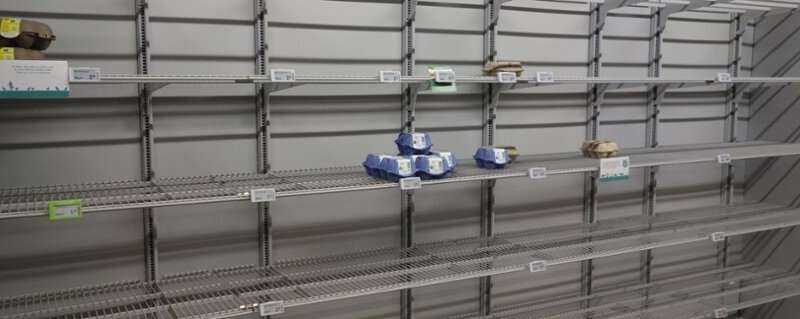
The Netherlands has announced special measures to fight SARS-CoV-2 coronavirus. These measures have at times caused questionable behavior, such as stockpiling or charging exorbitant sums for masks. But the intentions behind this seemingly antisocial behavior are not necessarily bad, says Professor of Psychology Carsten de Dreu.
“Even in normal circumstances, there is always a conflict between the interest of the individual and of the group, but in these exceptional times, that is very apparent indeed.” This conflict between interests is exactly what Carsten de Dreu, Professor of Social and Organisational Psychology at Leiden University, researches. He received a Spinoza Prize for this in 2018, the highest academic distinction in the Netherlands.
Fear
behavior that we consider antisocial in these times of corona, such as stockpiling food, does not usually come from a place of greed, says De Dreu, but from a place of fear. “In crisis situations people’s first instinct is to provide for their nearest and dearest, for their children, parents and grandparents. They see others stockpiling and worry there will be nothing left for their own family, so they act upon this. That’s very social behavior towards their own group. Even trying to sell masks at an exorbitant price can stem from the fear of no longer being able to provide for one’s family—although it could also be pure greed.”
Small collectives
De Dreu believes that something comparable can be seen in international politics, for example, when President Trump tried to convince a German company to produce an exclusive coronavirus vaccine for the US. “Trump was trying to provide for his own collective: America. That clearly clashes with the interests of the larger collective of the world as a whole, but you can’t just say it was based on bad intentions.”
What De Dreu is saying that a phenomenon such as ‘the collective’ is always at different levels. “A collective interest can be an interest of the world, but equally of a country, a family or a group of friends. The interests of the different levels hardly ever run parallel. “When people are under pressure, they are more likely to choose a smaller collective. This has been demonstrated in the experiments and lab simulations that we’ve carried out.
“That can work fine for a long time, especially if there’s no competition between these collectives. But tensions start to arise in times of scarcity: now France has enough masks, for instance, but doesn’t want to export them to the Netherlands, which desperately needs them. Not because they don’t like us, but because they want to be able to provide for their own collective.”
Time needed
In the event of a global pandemic, that is a major problem. A virus doesn’t respect national borders nor could it give a damn about the existence of different collectives. “If we want to persuade people to act for the larger collective rather than the smaller one, we actually have to encourage unnatural behavior and that is very difficult. People need time to change. If you just lock the population up in their homes, as has happened in Spain and France, people don’t understand. As soon as the police stops enforcing this, people go outside en masse and nothing has changed.
Source: Read Full Article